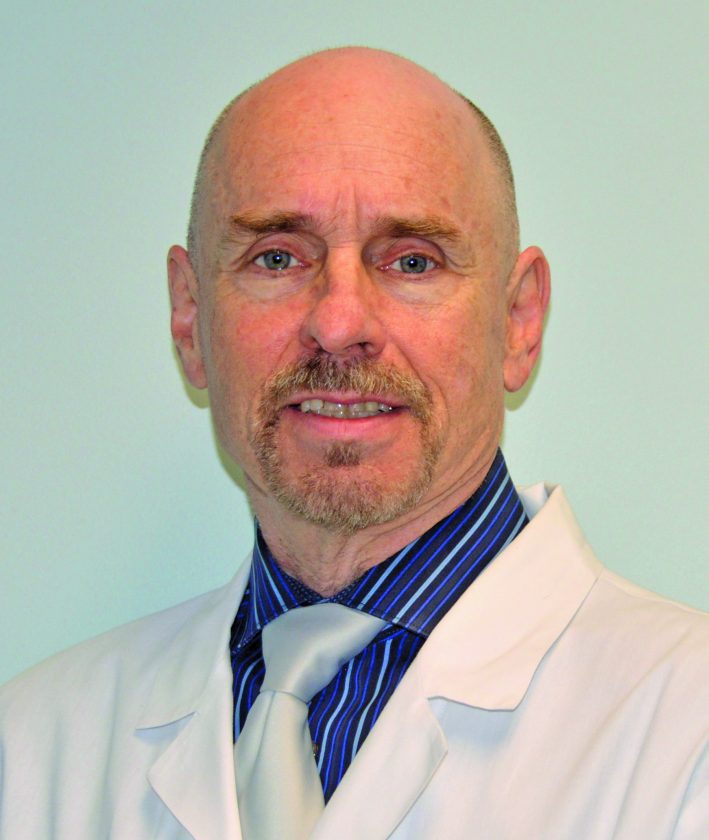Infection
Health Matters
Conway McLean, DPM, Journal columnist
We live in a new and rather strange world, unlike any other in recorded history. The changes in technology and culture, society in general, are occurring at an ever-increasing rate.
Humans are traveling regularly, crossing the globe on a daily basis, intermingling like never before. The potential for the rapid spread of disease has been ably demonstrated for us over the last few years in the form of the COVID pandemic.
Infectious disease experts will tell you the danger isn’t over. Another pandemic is not predictable, but infections remain a tremendous concern. Serious, cross-border infectious disease outbreaks have tested society’s emergency response. Of course, numerous factors have been involved in this shift besides global travel, from climate change to immigration, social inequalities, environmental degradation, and more.
But this is not a good time for a new infectious outbreak, we are already dealing with the recent rise in antibiotic resistant microbial infections, a developing trend over the last half century.
In particular, the term ‘Superbug’ has caught on for the rise of resistant organisms, overly simplistic as it is. These don’t kill everyone, but they have infected about 2 million people worldwide each year and killed hundreds of thousands. Those most likely to succumb to these microbes are those with immature or compromised immune systems. These include newborns and the elderly, smokers, people with diabetes or autoimmune disorders, and those taking steroids chronically (which suppress the body’s defenses).
The rise of superbugs can be traced back, at least in part, to the excessive and reckless prescribing of antibiotics. They are dispensed too often for a child’s viral infection or used excessively to prevent disease in farm animals. Antifungal drugs are applied to prevent agricultural plants from rotting. Many of these uses are controversial when it comes to the long term consequences. For years, infectious disease experts have issued dire warnings about the overuse of antibiotics which would serve to create more resistant microbes.
According to the most recent estimates, the death toll in the US in 2019 was 162,000 from these difficult infections. Worldwide fatalities from resistant microbes is believed to be about 700,000. These numbers make it clear this is a significant concern. And predictions for the scope of the problem paint a troubling picture.
Antibiotics have revolutionized medicine. Their ability to vanquish many common infections have saved millions of lives over their years of use. But antibiotics have been losing their punch against many bacteria. If someone takes an antibiotic when they have a viral infection (e.g. the flu), the medication won’t affect the viruses but, instead, will destroy some of your natural, healthy biome. But harmful bacteria that are tough enough to survive exposure to the drug will have a chance to grow and multiply. This exposure can serve to train the germ to tolerate the drug so that raising the dose doesn’t lead to eradication of the contagion.
Probably the biggest ‘star’ of the superbugs is MRSA, a member of the extremely common group of bacteria referred to as staphylococcus. Staph aureus has caused innumerable infections, which often appear as a hot, red, swollen pimple-like structure, although MRSA is also capable of resulting in pneumonia or septicemia (a blood-borne infection).
MRSA bacteria don’t respond to many of the best drugs used in years past to fight these germs. The name of this organism comes from its resistance to methicillin, an older antibiotic previously effective in resolving most staph infections. Many people recover from MRSA infections, but some cases can be life-threatening. Authorities believe more than 80,000 of these infections occur each year in the US, with 11,000 deaths resulting.
But there is a new player in the world of drug-resistant germs: a fungal contagion, which is quietly spreading across the globe. Candida auris seems well on the way to becoming the next epidemiologic crisis, threatening the lives of the infirm, the ill, the elderly, anyone with a weakened immune system. This is a fungal organism, which has become impervious to all of our most powerful antifungal medications. Additionally, C. auris is extremely hard to identify, escaping detection in many individuals so afflicted.
Over the last five years, outbreaks of C. auris infections have occurred in healthcare facilities all over the world, including a neonatal unit in Venezuela, a hospital in Spain, even a prestigious medical center in England. These dangerous organisms have caused infections in the US, India, and South Africa. Yet, many of the affected institutions have been reluctant to publicize the outbreaks of Candida auris, claiming the news will frighten the public unnecessarily.
Without question, antibiotics have saved millions, by resolving bacterial-induced illnesses that were once deadly, we have lengthened the life span of so many. But we have bred a new assortment of these superbugs, be they fungal, bacterial, or viral. If an infection gets started, we soon may not be able to stop it.
Modern medicine has played a dangerous game, developing new antibiotics in response to another bug becoming resistant. There has been renewed interest in the creation of new antibiotics, but microorganisms in many ways have the upper hand. And if we continue to use antibiotics carelessly, recklessly, and excessively, we’ll continue to train infectious microorganisms to become resistant, and increasingly difficult to eradicate.
This is not a good time to have a weakened immune system. With the recent growth of resistant fungal organisms, we have a frightening, new dimension to the phenomenon of drug resistance. Our efforts to develop new drugs are merely playing “catch-up,” chasing after the newest resistant bug. The experts are panicked; we approach a day in which a paper cut might be fatal.
EDITORS NOTE: Dr. Conway McLean is a podiatric physician now practicing foot and ankle medicine in the Upper Peninsula, having assumed the practice o. Reach him at at drcmclean@penmed.com

